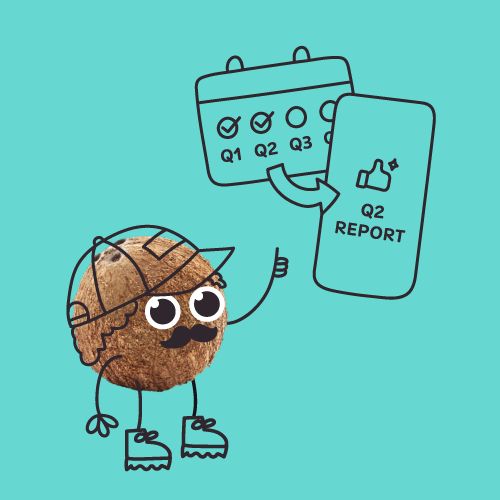How much do your sole trader clients love your accountancy firm? To the moon and back? OK, that’s probably a stretch... A little? Great. Not at all? That’s something to worry about.
Getting your sole trader clients to love your accountancy firm should be a key objective. The more they love you, the less likely they are to move to another accountant or take a cost-saving “DIY approach” to their tax needs. Both are bad for your bottom line, while finding new sole traders clients involves a lot of effort and cost.
Build better relationships with your sole trader clients
So, how do you build stronger relationships with your sole trader clients and encourage them to “know, love and trust” your accountancy firm?
It’s hard for sole traders to get the free, reliable, accessible information that enables them to survive and prosper. There’s a lot of information out there, but much of it isn’t very good. You can be a big positive influence, by keeping them up to date on important tax changes that affect them. You can also advise your sole trader clients on how to better manage their finance and tax challenges and become more successful. Blogs and monthly or quarterly client enewsletters are ideal for both.
Time is a very precious resource, of course. Often there doesn’t seem to be enough hours in the day when you’re running your own business, as you’ll no doubt know from your own personal experience. So, anything you can do to save your sole trader clients time will be greatly appreciated. The other main challenge that sole traders face, of course, is to keep a tight lid on their costs, which have written significantly in most areas in recent years. Your sole trader clients will love you if you offer them greater value for money or suggest practical ways that they can reduce their costs.
Cheaper sole trader accounting software
The best solutions enable your sole trader clients to save time and money. Coconut, for example. Coconut is the accounting app that was developed especially for sole traders. It enables them to record their income and expenses, so they can better control their cash flow and manage their business finances.
Coconut can be integrated with more than 30 UK bank and credit card accounts, so that users never again fail to claim an allowable expense. Because it’s so quick and easy to use, Coconut also enables sole traders to spend less time on business and tax admin. Coconut is integrated with GoSimpleTax, making Self Assessment tax returns a doddle to complete and file. And thanks to Coconut, sole traders can use their mobile phone to snap and store expense receipts, produce/send own-branded invoices from the app and be told when payment is overdue. A free 30 day trial is available, so you can see why a huge number of users love Coconut so much.
Coconut offers superb value for money, costing sole trader users just £9 a month, which is significantly less than most other accounting software options. Using Coconut can potentially save sole traders between £100 and £200 a year. Many UK accountants already get their sole trader clients to use Coconut, while using other more expensive and complex options for their limited company and VAT-registered clients.
So, what’s the deal?
● Accountants can create a free partner account, if their sole traders sign up to an individual subscription.
● Alternatively, accountants can sign up to a professional plan costing just £5+VAT per client per month for a 12-month fixed term agreement or £7+VAT per client per month on a pay-as-you-go deal.
● Significant accountant partner volume discounts are available to those who sign up their sole trader clients in bulk (eg 10% off the above rates for signing up between five and 24 clients, 20% off for 25-99 clients and 30% off for 100-500 clients, whether sole traders, unincorporated landlords or CIS contractors).
Coconut could enable you to make your own life easier, reduce your own costs significantly and offer your sole trader and landlord clients a far cheaper and easier way to maintain financial records, take care of business and keep their cash flow healthy. Why wouldn’t they love you for that?
● To find out more about how Coconut could help you and your sole trader and small landlord clients book a demo with a member of our team. We’d love to hear from you.











